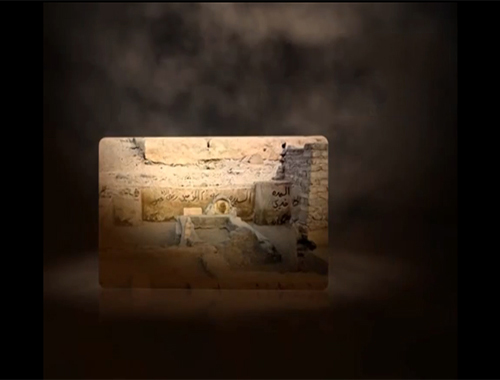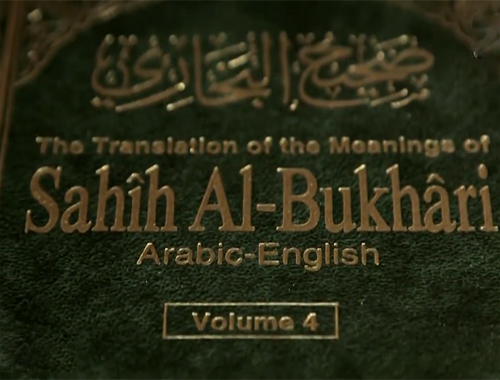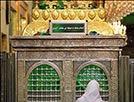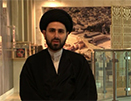Verse116-117
- Details
- Hits: 2890
(116) وَقَالُواْ اتَّخَذَ اللّهُ وَلَدًا سُبْحَانَهُ بَل لَّهُ مَا فِي السَّمَاوَاتِ وَالأَرْضِ كُلٌّ لَّهُ قَانِتُونَ
(117) بَدِيعُ السَّمَاوَاتِ وَالأَرْضِ وَإِذَا قَضَى أَمْراً فَإِنَّمَا يَقُولُ لَهُ كُن فَيَكُونُ
116. " They said: ' Allah has taken to Himself a son '. Glory be to Him! Nay, to Him belongs all that is in the heavens and on the earth: all are obedient to Him."
117. " Originator (is He) of the heavens and the earth; and when He decrees a matter to be, He only says to it ' Be ' and it is."
Commentary :
The Jews, Christians, and Pagans and their Superstitions
The superstitious belief that Allah has got a child is accepted by the Christians, a group of the Jews, and some pagans. All of them believe that He has chosen a child for Himself.
Sura At-Taubah, No. 9, verse 30 says: " The Jews call 'Uzair (Ezra) a son of Allah, and the Christians call Christ the son of Allah. That is a saying from their mouth; (in this) they but imitate what the Unbelievers of old used to say. Allah's curse be on them: how they are deluded away from the Truth!"
Also, about the pagans, Sura Yunus, No. 10, verse 68 says: "They say: ' Allah has begotten a son! ' Glory be to Him! He is Self-Sufficient! ..."
There are many other verses in the Holy Qur'an that refer to this inappropriate idea of theirs.
To condemn this superstition, the first verse of the verses under discussion says:
" They said: ' Allah has taken to Himself a son '. Glory be to Him! ..."
Why would Allah need to take a son for Himself? Is He in need of one? Is He limited? Does He need to be helped? Or, is it necessary for Him to have any descendants?
"...Nay, to Him belongs all that is in the heavens and on the earth; ..."
"... all are obedient to Him."
* * * *
He is not only the Possessor of all things and creatures in the world of existence, but also, " Originator (is He) of the heavens and the earth; ..."
And He has created all of them without any previous design, preparation, or without being in need of any pre-existing material.
What necessity is He forced by to have a child while everything is immediately ready for Him?
"... and when He decrees a matter to be, He only says to it ' Be ' and it is."
Explanation
Besides the above verse, the phrase / kun fayakun / ' Be! and it is ' has occurred in several verses of the Qur'an, including the followings:
1. Sura 'Al-i-'Imran, No. 3, verse 47
2. Sura 'Al-i-'Imran, No. 3, verse 59
3. Sura Al-An'am, No. 6, verse 73
4. Sura An-Nahl, No. 16, verse 40
5. Sura Maryam, No. 19, verse 35
6. Sura Yasin, No. 36, verse 82
7. Sura Qafir, No. 40, verse 68
This phrase is about the Will of Allah and His Absolute Sovereignty on the subject of creation.
To understand this well, we should know the meaning of the Unity of Acts and the creation of all created beings by Allah's Will. Precisely, Unity of Acts, in terms of His acts, does not need any help or helper from outside Himself. Should He use any means for that purpose, the means itself is created by Him and used by Him. It is not that he needs some help from outside Himself which is not connected to Him, and to bebrought from somewhere else, or if so Allah would not be able to do whateverHe wants to. No, it is not like that at all. Allah, Acts need none but Himself and His Will alone.
The explanation is that the objective meaning of the phrase / kun fayakun /('Be! ' and it is ) is ot that Allah issues a verbal command with the word ' Be ', but the reality is that when He wills something to exist it exists. there will be no time between that will and its existence, not even a moment.
In other words, the phrase / Kun fayakun / (' Be! ' and it is ) is only to bring home to the human mind the Omnipotent Will which, properly speaking, can never be ruanlated into any verbal expression. Amir-ul-mineen Ali ibn-AbiTalib (a.s) of whom the holy prophet (p.b.u.h.) had declared:'I (i.e. the holy prophet himself) am the city of knowledge and Ali is its Gate ', in referring to the phrase mentioned in this verse; regarding the Divine Omnipotence and the execution of His Will says:
" Not by sound uttered, nor by voice heard, His Word, blessed be He, is Action proceeding from Him " . (1)
There is a similar idea in a tradition from Hadrat Musa-ibn-Ja'far, the seventh Imam (a.s.), cited in Al-Kafi as well as in Touhid Saduq. (2)
This meaning, with a slightly different explanation, is also mentioned in Tafsir-Burhan, vol. 1, p. 146.
(1) Nahjul-Balaqah, Arabic version by Subh-i-Salih, p. 274
(2)Tafsir-us-Safi, vol. 1, p. 167











